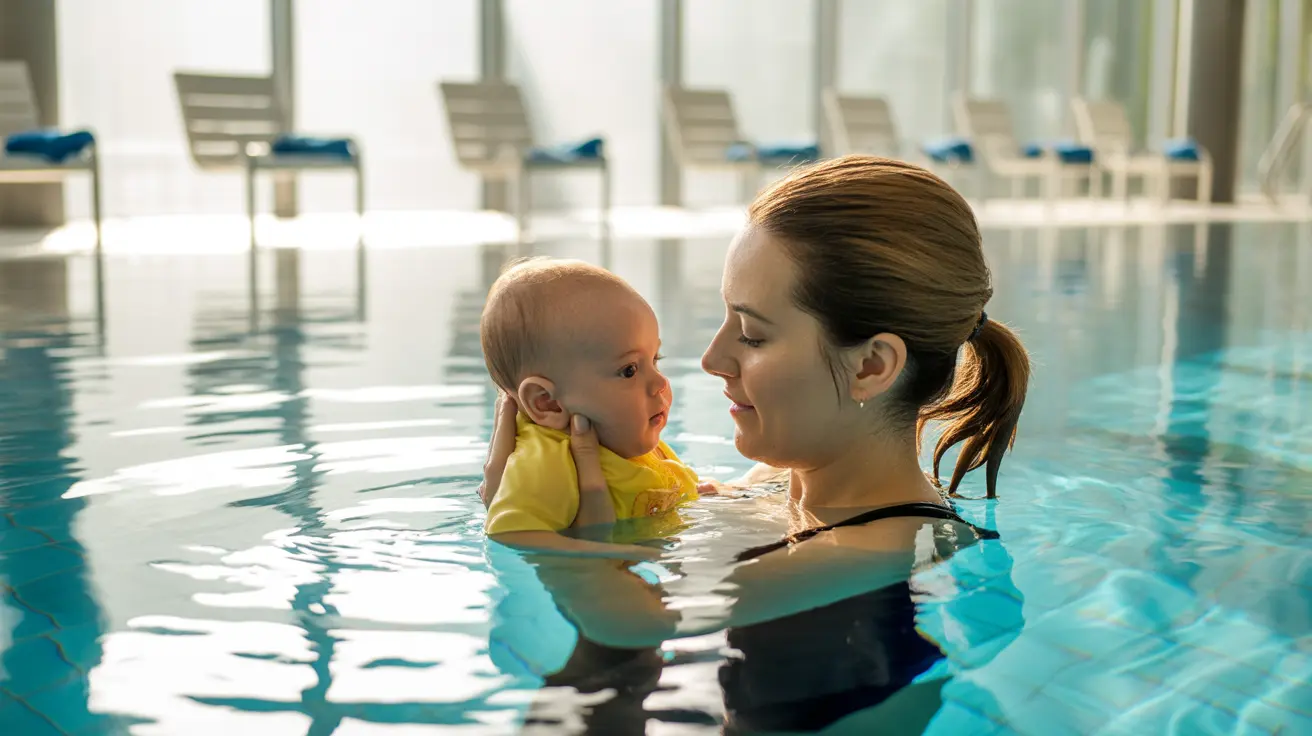Introducing your baby to swimming can be an exciting milestone, but many parents wonder about the safety of chlorine pools for their little ones. Understanding when and how to start pool activities with your baby is crucial for both their safety and enjoyment.
This comprehensive guide will help you navigate the important considerations of introducing your baby to chlorinated pools, including age recommendations, safety measures, and best practices for an enjoyable swimming experience.
Age Guidelines for Baby Swimming
Most pediatricians agree that babies can safely enter chlorinated pools after they are 6 months old. However, this recommendation comes with several important considerations:
- Immune system development
- Temperature regulation abilities
- Neck and head control
- Overall health status
For babies younger than 6 months, it's generally recommended to wait, as their immune systems are still developing and they're more sensitive to chemicals and temperature changes.
Understanding Chlorine's Effects on Babies
While chlorine is essential for pool sanitation, it's important to understand how it might affect your baby:
- Skin sensitivity and potential dryness
- Eye irritation
- Respiratory considerations in indoor pools
- Impact on delicate skin barrier
To minimize any potential negative effects, always ensure the pool's chlorine levels are properly maintained and regulated.
Essential Safety Measures for Baby Swimming
Before taking your baby into a chlorinated pool, implement these crucial safety precautions:
- Never leave your baby unattended
- Use appropriate swim diapers
- Maintain constant physical contact
- Check water temperature (ideally 85-87°F)
- Avoid crowded pool times
- Keep swimming sessions brief
Managing Pool Time Duration
The length of time your baby spends in the pool should be carefully monitored:
- Start with 10-minute sessions
- Gradually increase to 20-30 minutes maximum
- Watch for signs of fatigue or discomfort
- Monitor water temperature tolerance
- Check for signs of chilling (blue lips, shivering)
Sun Protection Considerations
Sun safety is particularly crucial for babies near pools:
- Babies under 6 months should avoid direct sunlight
- Use protective clothing and hats
- Schedule swim time during non-peak sun hours
- Create shade with umbrellas or canopies
- Consider indoor pools for very young babies
Post-Swimming Care
After pool time, proper care is essential:
- Rinse baby thoroughly with clean water
- Apply moisturizer to protect skin
- Change into dry clothes promptly
- Watch for any skin reactions
- Monitor for ear discomfort
Frequently Asked Questions
At what age is it safe for babies to start swimming in pools with chlorine?
Babies can typically start swimming in chlorinated pools at 6 months of age, provided they are healthy and developing normally. However, always consult with your pediatrician first, as individual circumstances may vary.
Can chlorine in swimming pools harm a baby's skin or eyes?
While chlorine can cause temporary irritation to a baby's skin and eyes, it typically won't cause harm when pools are properly maintained. Using swim goggles and applying a protective barrier cream can help minimize irritation.
What safety precautions should parents take when their baby is near or in a pool?
Essential safety measures include constant supervision, using proper swim diapers, maintaining physical contact, ensuring appropriate water temperature, and keeping sessions brief. Never leave a baby unattended near or in water, even for a moment.
How long should babies stay in a chlorine pool to avoid getting too cold or irritated?
Initially, limit pool time to 10 minutes and gradually increase to no more than 30 minutes. Watch for signs of cold (shivering, blue lips) or discomfort, and end the session if these occur.
Why is sunscreen not recommended for babies under 6 months when swimming outdoors?
Babies under 6 months have highly sensitive skin that can easily absorb chemicals in sunscreen, potentially causing reactions. Instead, protect them with protective clothing, hats, and shade. For babies over 6 months, use water-resistant, broad-spectrum sunscreen specifically formulated for infants.




